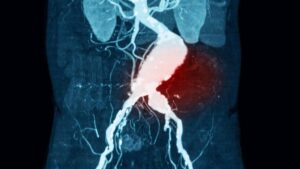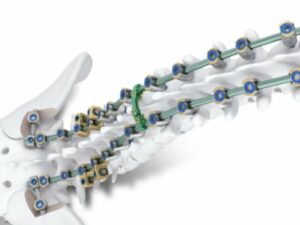<!–
–>

Sight Sciences has announced results from a study showing that glaucoma patients who underwent procedures enabled by its OMNI Surgical System technology experienced a greater average reduction in intraocular pressure-lowering medication usage compared to other minimally invasive glaucoma procedures or cataract surgery alone
The 12-month retrospective sub-analysis study compared the medical records of nearly 17,000 glaucoma patients across four different cohorts depending on procedure: OMNI Surgical System technology in combination with cataract, iStent Inject in combination with cataract, Hydrus in combination with cataract, and cataract surgery alone. Patients in the OMNI cohort experienced the greatest reduction in medication use, with a mean reduction from baseline of 1.01 glaucoma medications at 12 months post-operatively. This was a statistically significantly greater medication reduction when compared to the medication reductions observed for the iStent Inject in combination with cataract surgery and cataract surgery alone.
The OMNI Surgical System is a handheld, single-use therapeutic technology that targets three points of resistance within the eye. It is FDA-cleared for canaloplasty, followed by trabeculotomy to reduce intraocular pressure in adult patients with primary open-angle glaucoma. It is protected by global patents and is part of California, US-based Sight Sciences’ portfolio.
The study came from a collaboration between Sight Sciences and digital health company Verana Health. Data from medical records of patients from the American Academy of Ophthalmology (Academy) IRIS Registry (Intelligent Research in Sight) was analysed with the primary endpoint evaluating intraocular pressure and medication reduction amongst FDA-cleared procedures.
“Given the limitations and challenges inherent in topical intraocular pressure-lowering medications, such as long-term adherence and adverse events that contribute towards discontinuation, the meaningful reduction in medication usage for patients with mild glaucoma with the OMNI technology is significant,” said Dr Michael Mbagwu, adjunct clinical instructor of ophthalmology at Stanford University School of Medicine and senior medical director of Verana Health.
“As physicians, we should be open to tailoring treatment options in a patient-specific way, including offering minimally invasive surgeries as a means for both intraocular pressure and medication reduction. This sub-analysis shows differential outcomes for the most commonly used minimally invasive surgeries in the real-world setting and should inform future conversations.”
<!– /14453196/Verdict/Verdict-In-Article-Mobile —
–>
- SEO Powered Content & PR Distribution. Get Amplified Today.
- PlatoAiStream. Web3 Data Intelligence. Knowledge Amplified. Access Here.
- Minting the Future w Adryenn Ashley. Access Here.
- Buy and Sell Shares in PRE-IPO Companies with PREIPO®. Access Here.
- Source: https://www.medicaldevice-network.com/news/study-shows-effect-of-omni-surgical-system-for-reducing-medication-in-glaucoma-patients/
- :has
- :is
- 000
- 1
- 12
- 12 months
- a
- Academy
- across
- Adult
- adverse
- alone
- American
- amongst
- and
- announced
- AS
- At
- average
- Baseline
- BE
- between
- both
- Bruno
- by
- california
- came
- challenges
- Clinical
- Cohort
- collaboration
- combination
- commonly
- company
- compared
- contribute
- conversations
- credit
- data
- Depending
- different
- digital
- Digital Health
- Director
- effect
- enabled
- Endpoint
- evaluating
- events
- experienced
- eye
- followed
- For
- four
- from
- future
- Global
- greater
- greatest
- Health
- HTTPS
- in
- Including
- inform
- inherent
- Intelligent
- IT
- ITS
- jpg
- limitations
- long-term
- mean
- meaningful
- means
- medical
- medication
- medicine
- Michael
- months
- most
- nearly
- of
- offering
- Omni
- on
- open
- Options
- or
- Other
- outcomes
- part
- Patents
- patients
- plato
- Plato Data Intelligence
- PlatoData
- points
- portfolio
- pressure
- primary
- procedures
- protected
- real world
- records
- reduce
- reducing
- reduction
- registry
- research
- Resistance
- Results
- Said
- School
- SCIENCES
- senior
- setting
- Share
- should
- Shows
- Sight
- significant
- significantly
- stanford
- Stanford university
- Study
- such
- Surgery
- surgical
- system
- targets
- Technology
- that
- The
- Therapeutic
- this
- three
- to
- towards
- treatment
- university
- Usage
- use
- used
- was
- Way..
- we
- when
- WHO
- with
- within
- zephyrnet












